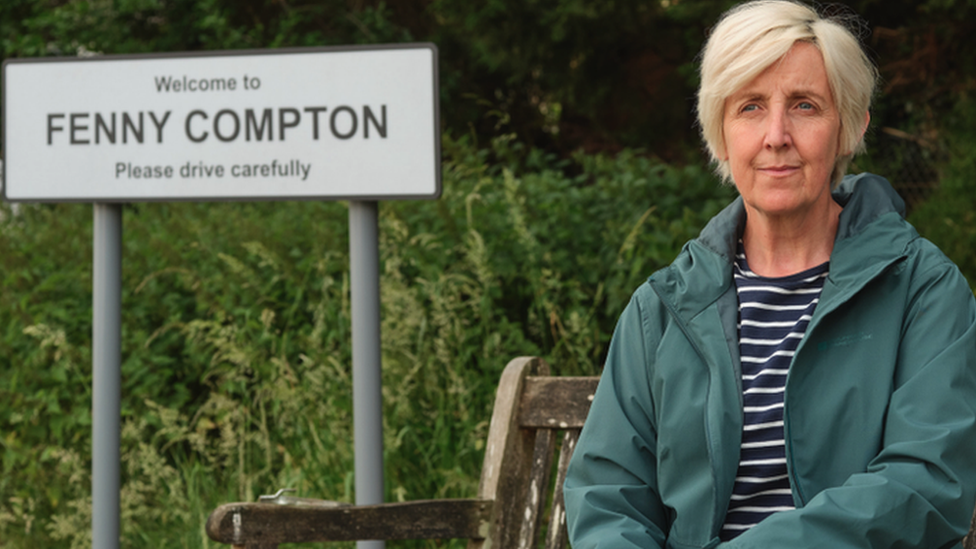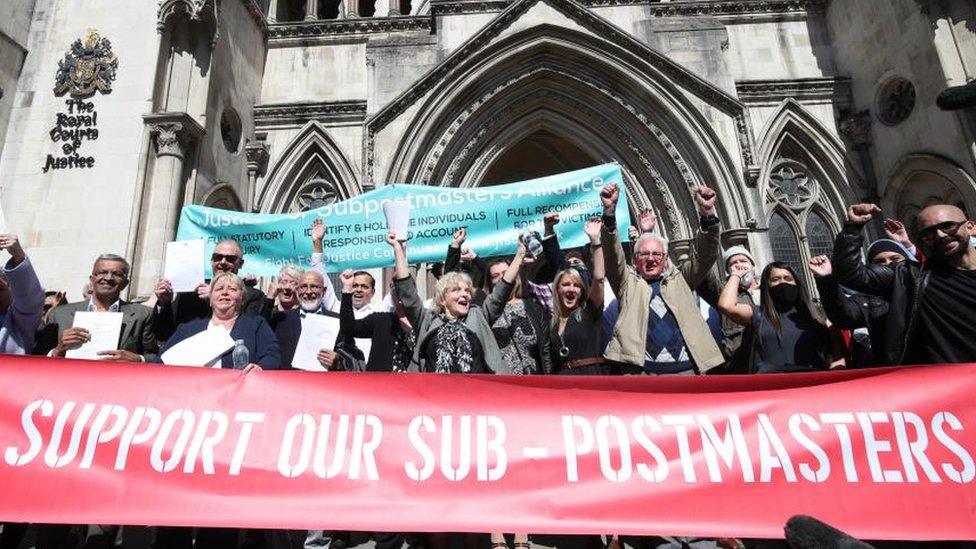Victims of national scandals united by shared trauma
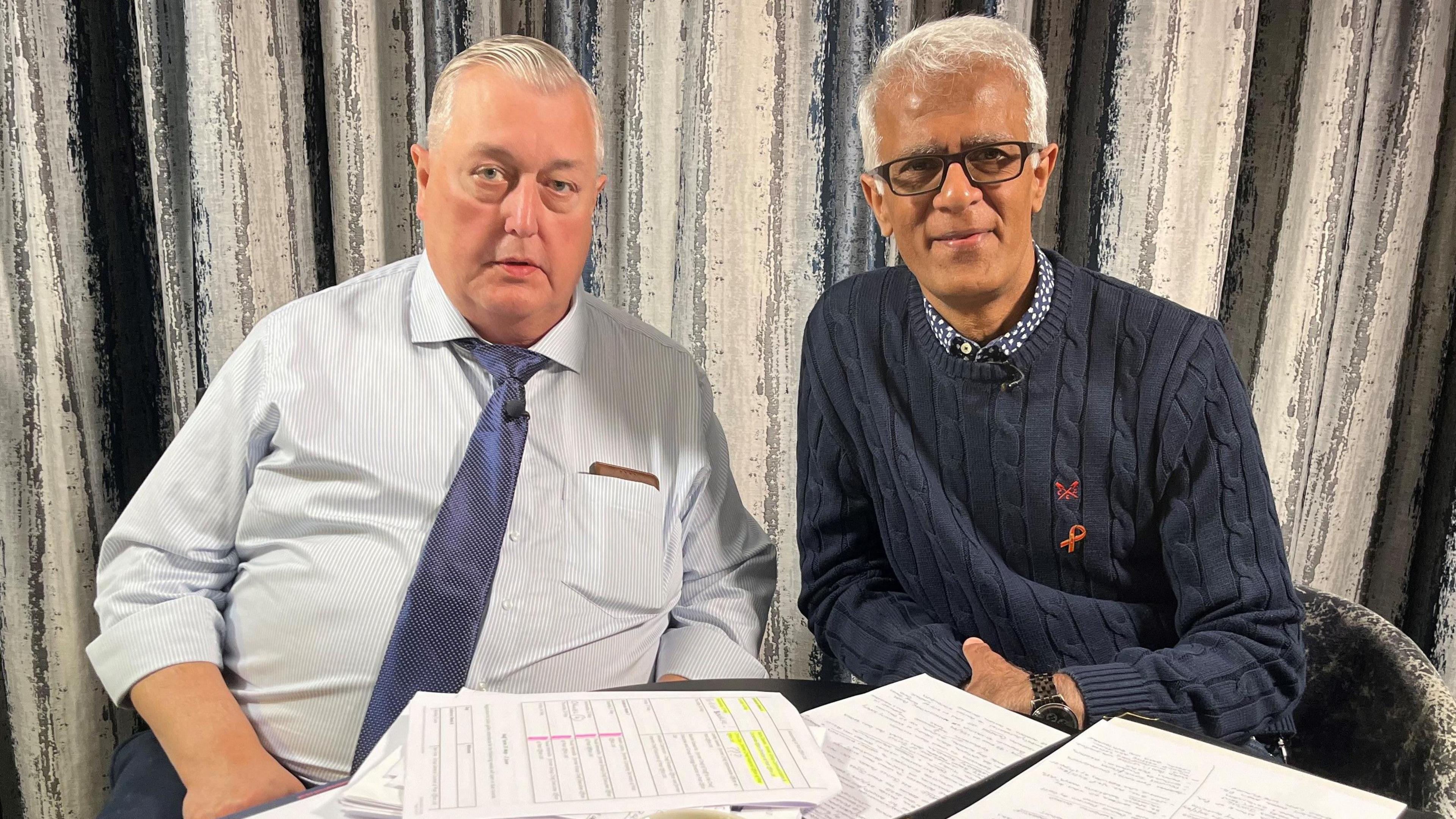
Former sub-postmaster Michael Rudkin and blood scandal survivor Suresh Vaghela had never met before
- Published
Michael Rudkin and Suresh Vaghela are two ordinary men who were caught up in two extraordinary national scandals.
Their stories are so different, yet they have so many shared experiences, with both of their lives changed irreparably through no fault of their own.
They had never met, but the BBC introduced the pair to one another, to enable a discussion on how their lives had been impacted.
When the men met, in Leicester, they politely shook hands, sat down and soon found common ground.
Among the topics they discussed were being shunned by their communities, having to rebuild their lives and facing the future.
Mr Vaghela, from Bushby in Leicestershire, is among more than 30,000 people who were infected with HIV and hepatitis C after being given contaminated blood products from 1970 to 1991.
He and his brother Praful were both haemophiliacs, a disorder that prevents blood clotting properly and can lead to spontaneous bleeding.
Factor VIII is a clotting agent which people with haemophilia A have a shortage of.
During the 1970s a process was developed to replace the missing agent, made from donated human blood plasma.
But the UK was struggling to meet demand for blood-clotting treatments, so imported supplies from the US.
At first the pair were delighted with the new treatment, saying it made an "incalculable difference" to their lives.
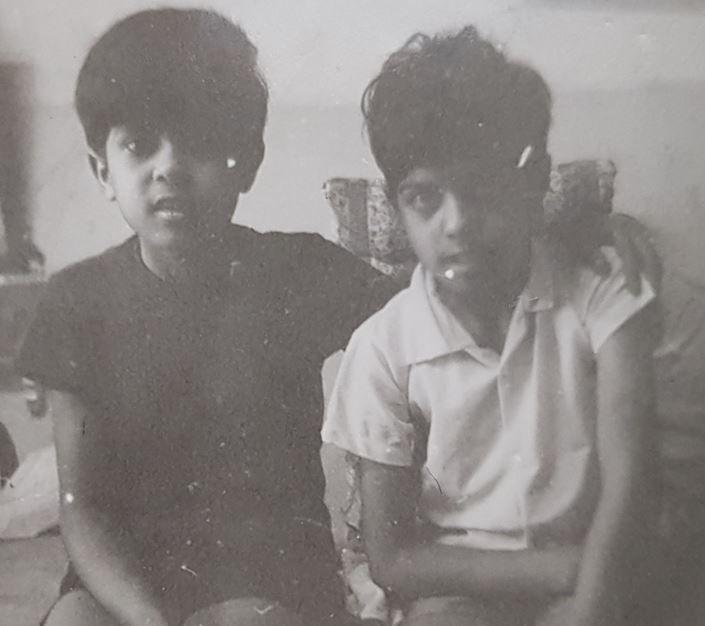
Mr Vaghela with his brother Praful
However, in 1980 - while at college - Mr Vaghela fell ill.
Mr Vaghela told the national blood inquiry that he was infected with hepatitis C between 1979 and 1980, and infected with HIV between 1979 and 1983.
He was identified with hepatitis non-A / non-B in 1980, and was told of his HIV diagnosis in 1983 when he was a first-year student at university.
He first tested positive for hepatitis C in 1990, but not told of his infection until three years later.
Talking to Mr Rudkin, he said he did not know what it meant at the time.
NHS staff, he said, told him that "there is no treatment, you've only got two months. Sort your papers out and see your family".
Mr Vaghela's brother Praful died from Aids in 1995, aged 33. He too had contracted HIV from contaminated Factor VIII.
Mr Vaghela has spent decades campaigning for the truth to come out.
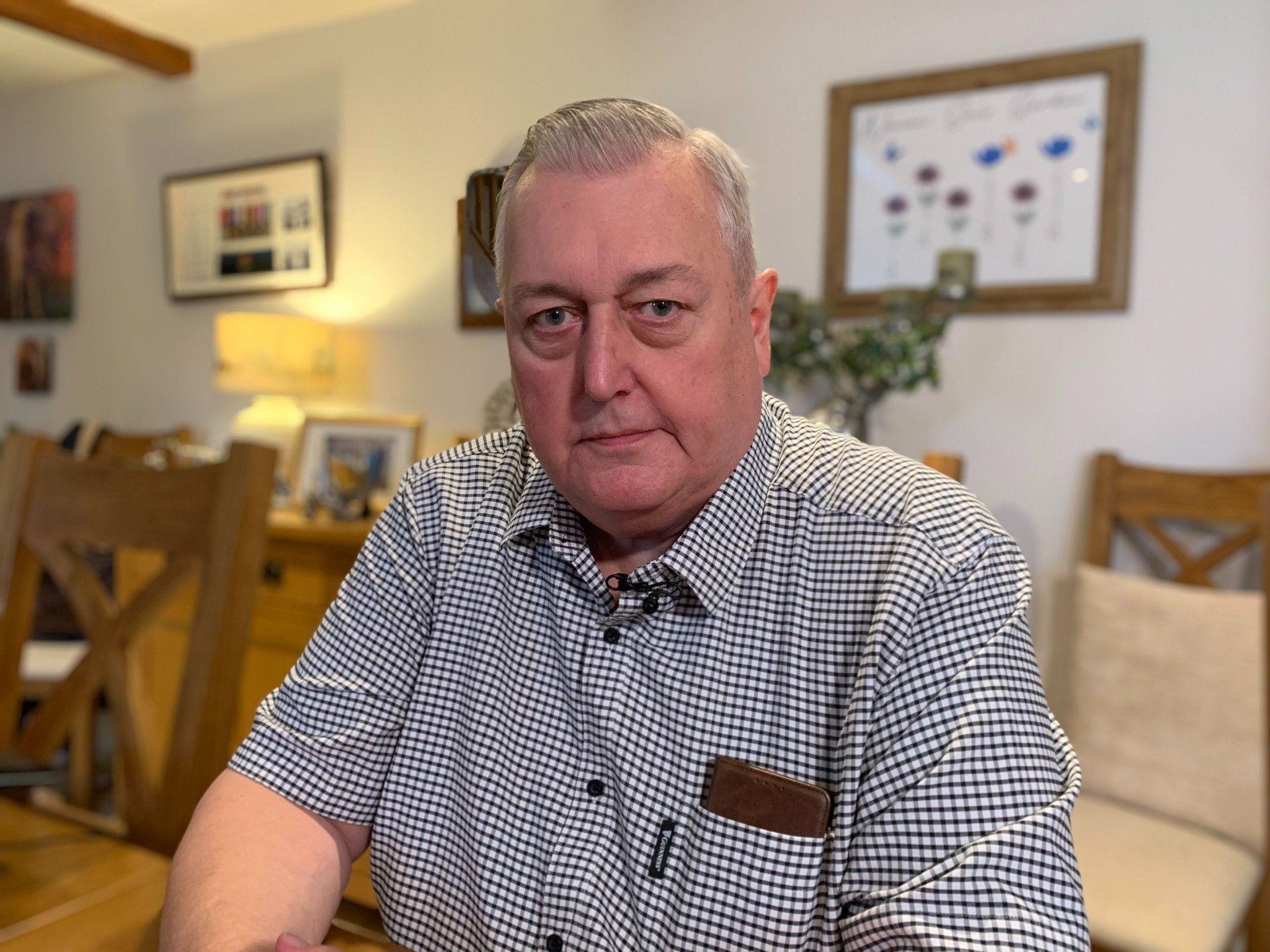
Mr Rudkin says his livelihood was ruined by the Post Office scandal
Former sub-postmaster Michael Rudkin has also spent years campaigning, but for a different cause.
More than 900 sub-postmasters were prosecuted between 1999 and 2015 for stealing because of incorrect information from a computer system called Horizon.
The faulty software wrongly made it look like money was missing.
Mr Rudkin lost his job as a sub-postmaster in Ibstock, Leicestershire, and his union position, when his wife Susan Rudkin was wrongly convicted of stealing money from the Post Office.
Her conviction was finally overturned in April 2021.
Mr Rudkin told Mr Vaghela: "I've been stripped for 16 years of being a high earner. The reputation went with it as well.
"I'm now going to be reliant upon the compensation that comes forward as a result of a settlement from government through the Post Office so that I can hopefully live out my years comfortably."
The Post Office scandal has been described as "the most widespread miscarriage of justice in UK history".
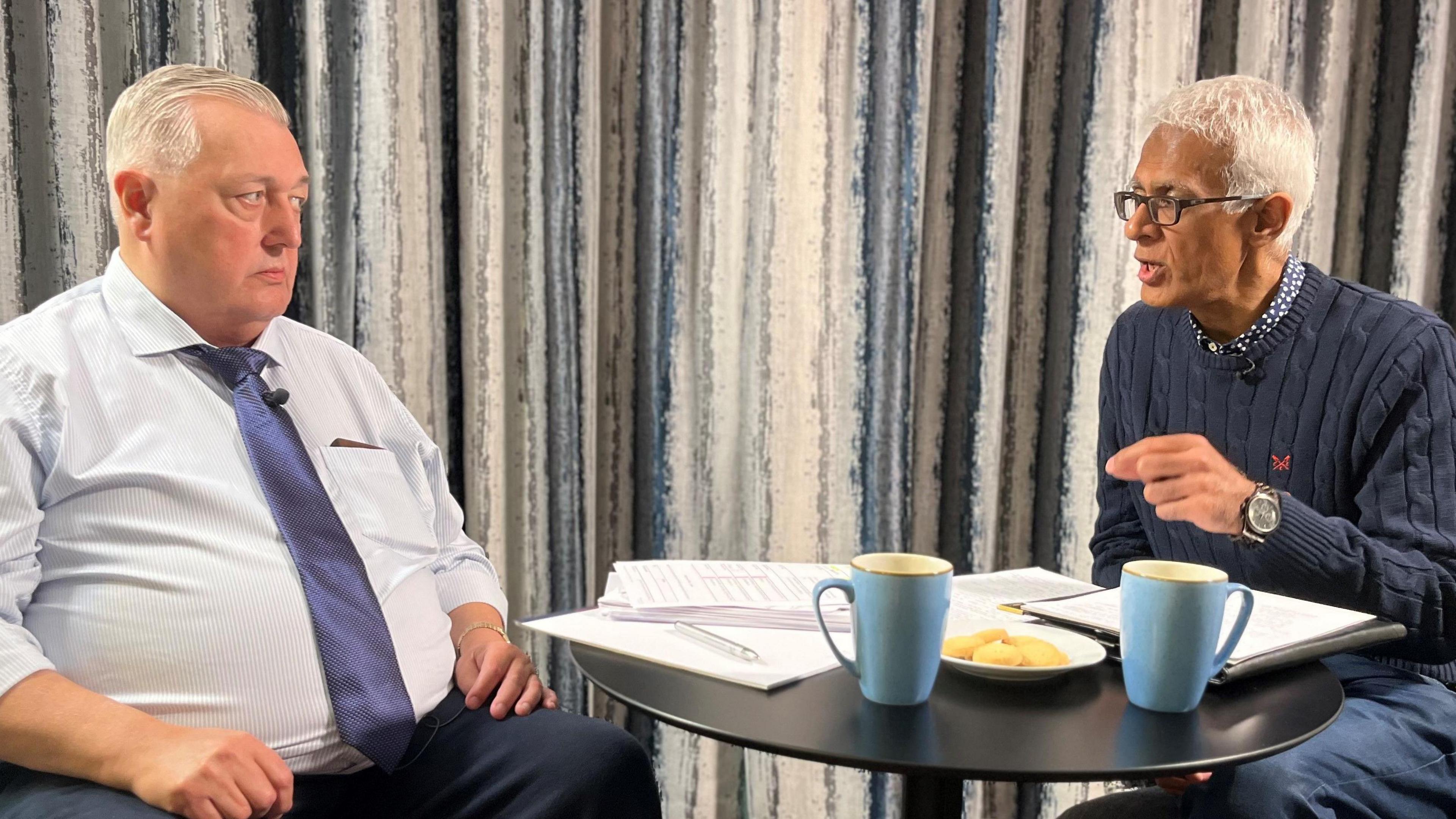
The pair shared personal accounts of what they have been through
The men talked openly about not being believed, fighting for justice and compensation.
Mr Vaghela said: "Certainly for me, we were just a lonely voice in the wilderness. Even 25 years ago, were they not listening?"
In response, Mr Rudkin said: "I think it was a case that they didn't want to listen. It was all about protecting the brand at any cost."
Mr Vaghela, like millions of people, watched the Post Office scandal unfold and empathised with Mr Rudkin about what he must have gone through.
He said: "You're being viewed as a criminal even before anything was proven."
Mr Rudkin nodded and said: "To have your peers within the business accuse you of being a thief and dismiss you, the community just turns and thinks 'well you've betrayed our trust'."
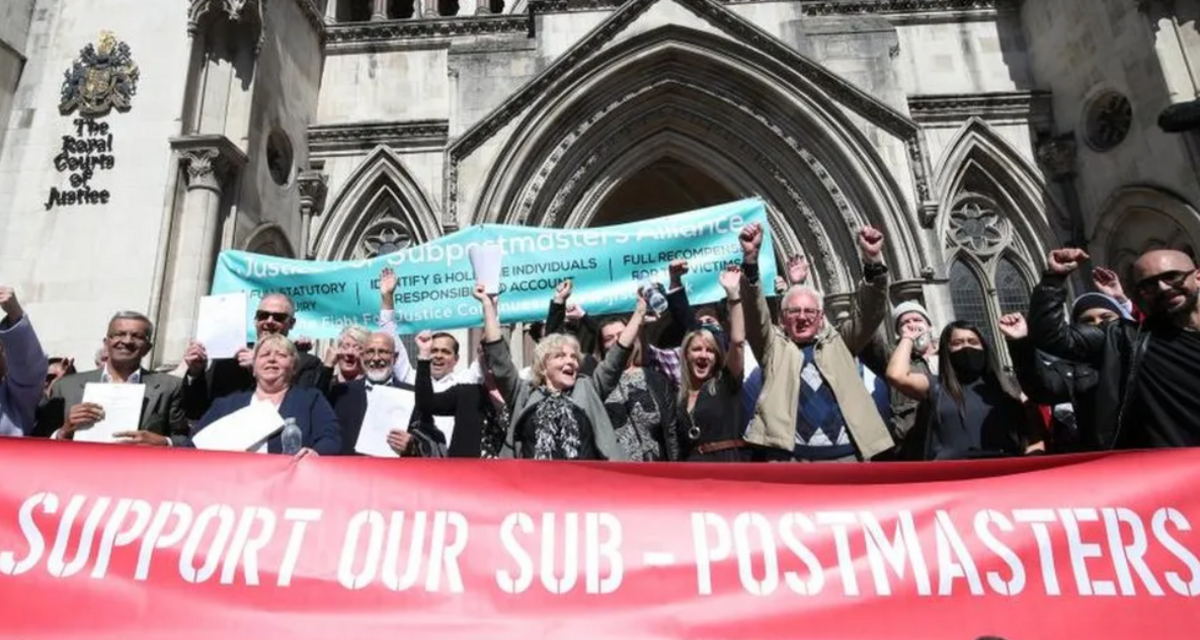
Convictions against sub-postmasters have been quashed, and saw the Post Office inquiry, which is ongoing, launched
Both men have since been vindicated - cleared of any wrongdoing.
A report following the infected blood inquiry listed a "catalogue of failures" that amounted to a "calamity".
Meanwhile, a bill quashing the convictions of hundreds of sub-postmasters was entered into law before the general election, with a national inquiry ongoing.
Mr Vaghela said: "We felt validated."
Mr Rudkin agreed, and said when he found out about his case: "It was really empowering, it was really emotional."
The pair came into the meeting as strangers, but left as friends.
'Shamefully affected'
A government spokesperson said: "These were appalling scandals, and we recognise that victims and their families cannot move forward without justice.
"The government has so far paid over £1bn in compensation to victims of infected blood, and over £220m to 2,800 Horizon victims.
"However, more remains to be done to right these wrongs, and we will work to ensure compensation is delivered as swiftly as possible to those so shamefully affected."
Follow BBC Leicester on Facebook, external, on X, external, or on Instagram, external. Send your story ideas to eastmidsnews@bbc.co.uk, external or via WhatsApp, external on 0808 100 2210.
Related topics
- Published20 May 2024
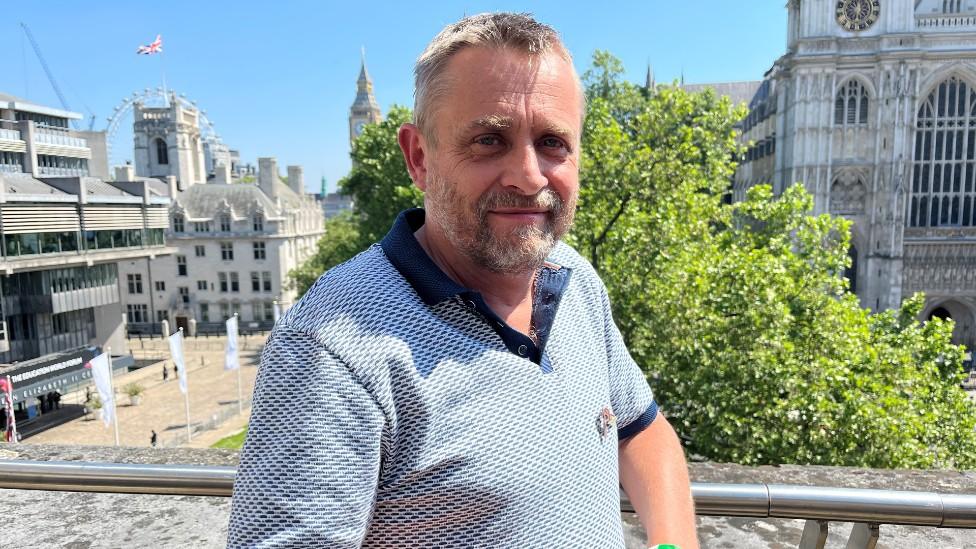
- Published22 May 2024
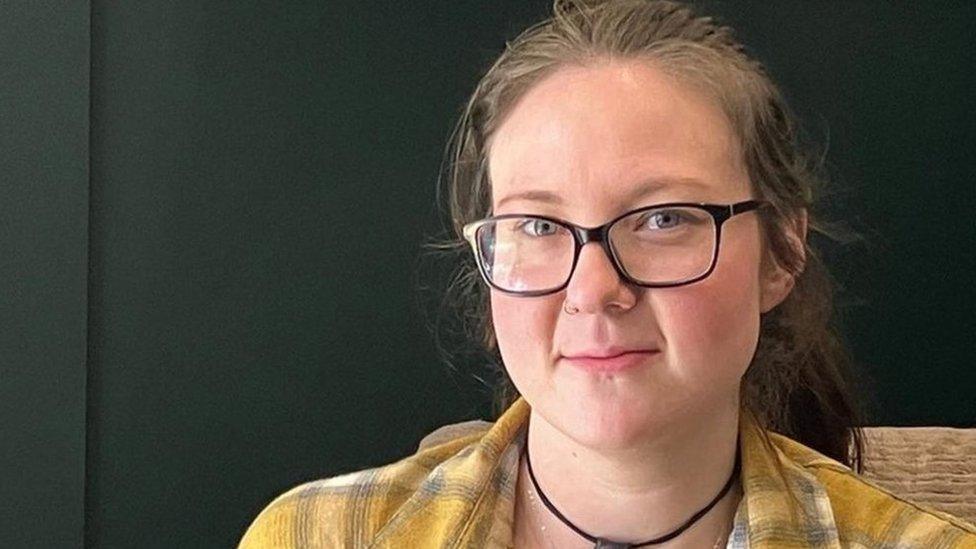
- Published10 January 2024
